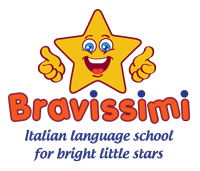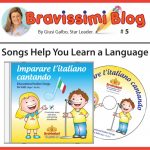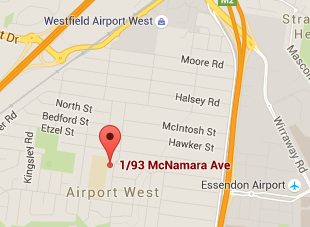As a Playgroup in Melbourne teaching children the Italian language we strongly believe in following the Montessori method and philosophy.
Maria Montessori: The benefits of using her methodology when teaching children a second language.
Language plays a major role in enhancing communication in humankind. A child’s language development starts during the infancy stage where they communicate by making different sounds. By the time they are 6 months old they may not understand some facts about Italian culture but begin to babble using certain syllables in an effort to communicate. It is undeniable that studying language is an imperative part of every child’s development. Parents play a major role in ensuring that their children learn their first native language. At this stage, most parents tend to invest in Italian learning games for kids, Italian lullabies or Italian music for kids to test their young one’s responsiveness. The best gift parents can give to their little ones is to ensure that they are exposed to a language development friendly environment for easy learning. A Montessori methodology is ideal for any child as far as studying a second language is concerned.
What are the benefits of using this methodology studying a second language?
They are:
· A conducive environment
The language development process of a child is influenced by the kind of environment they are in. A Montessori education program gives every child an equal opportunity to learn a second language effectively. This is made possible by providing the right environment for language development such as Classroom design, learning materials, and daily routines. All these are designed to support an individual child’s ability to learn and think fast. By the time they are enrolling for a Montessori classroom, most children have already learned their culture language. With everything they need, children using the Montessori language approach can learn a second language effortlessly.
· The Right Approach
Learning a second language from an early age makes it easy for Montessori students to develop the right coordination, concentration, pronunciation and spelling of words. A Montessori language approach is designed to ensure that each child gets special attention during the learning process. This move is aimed at ensuring that the little people can articulately express themselves through written and spoken words. Children are very responsive and attentive especially when they are fully supported. The best thing about this methodology is that the teaching staff use Italian baby songs and Italian Alphabet songs with interpretations in the second language of choice to teach the little people. This approach makes it easy for children to understand and interpret what they learn fast.
· Qualified Staff
Working with competent teaching staff who are passionate about kids is beneficial for all Montessori students. Most children have absorbent minds by the time they are 6 years which boosts their understanding and learning abilities. With the right staff, any child can easily learn to understand different sounds and words necessary for their second language development. The beauty of having qualified teaching staff, role models and mentors is that a child will feel fully supported. They soon learn how to write, read and comprehend what others say with ease.
· Self-correction and self-assessment
The Montessori education approach is aimed at making learning a second language easier. This methodology uses self-correction and self assessment programs to test the little one’s development. With each step students learn to assess their own work for mistakes, correcting and also learning from the errors they make.
Conclusion
While it is right to get the best Italian nursery rhymes for your child, a second language can make them more competent in future.



 Bravissimi head office:
1 / 93 McNamara Avenue
Airport West VIC 3042
CALL: (03) 9338 0831
EMAIL: ciao@bravissimi.com.au
Bravissimi head office:
1 / 93 McNamara Avenue
Airport West VIC 3042
CALL: (03) 9338 0831
EMAIL: ciao@bravissimi.com.au